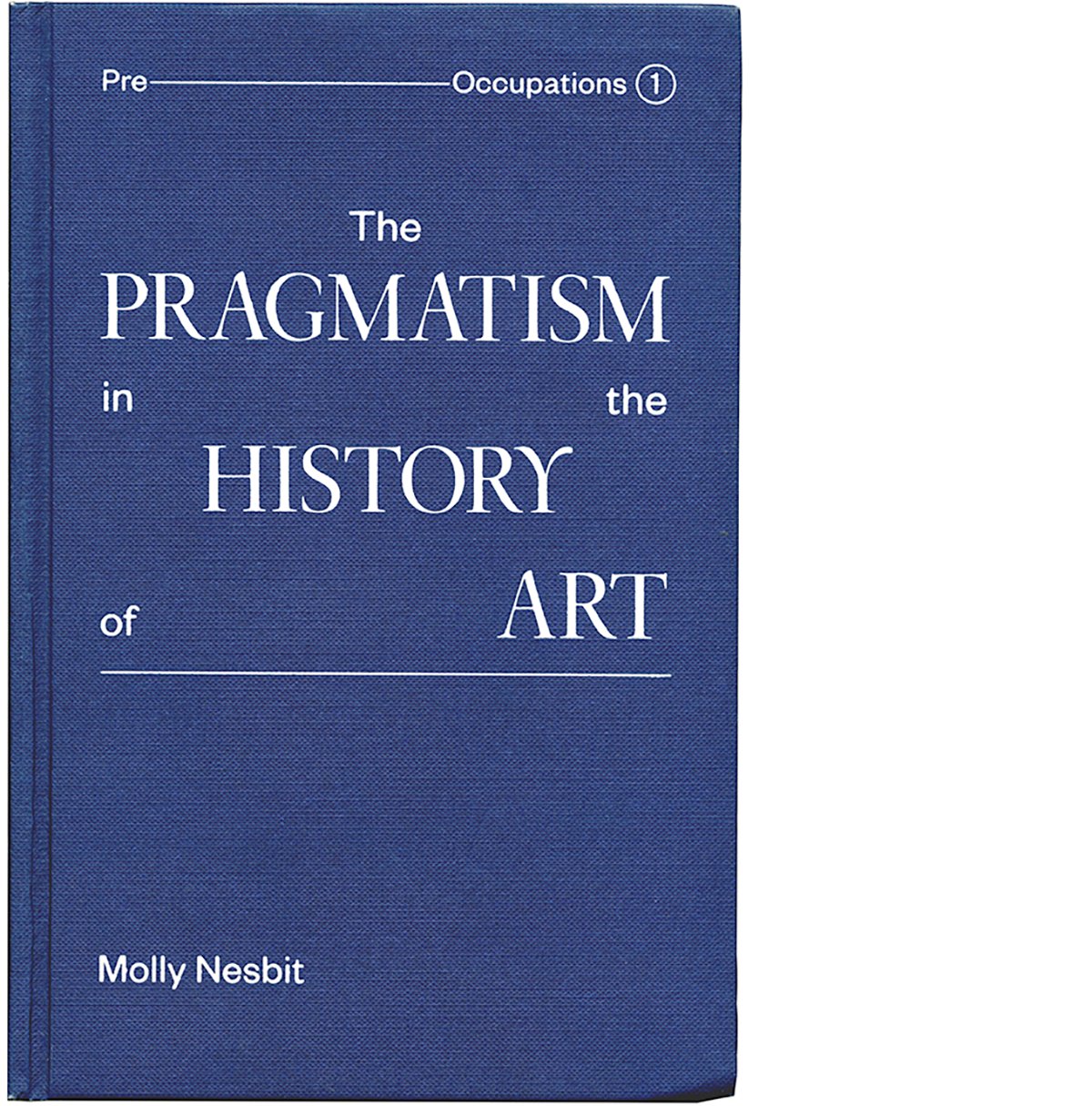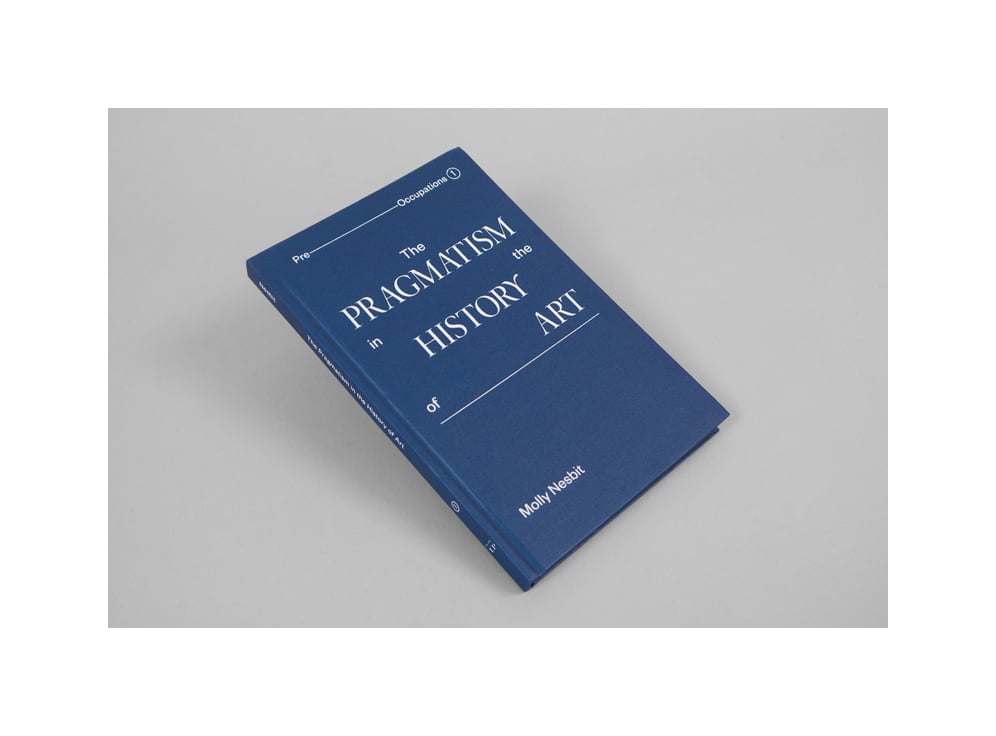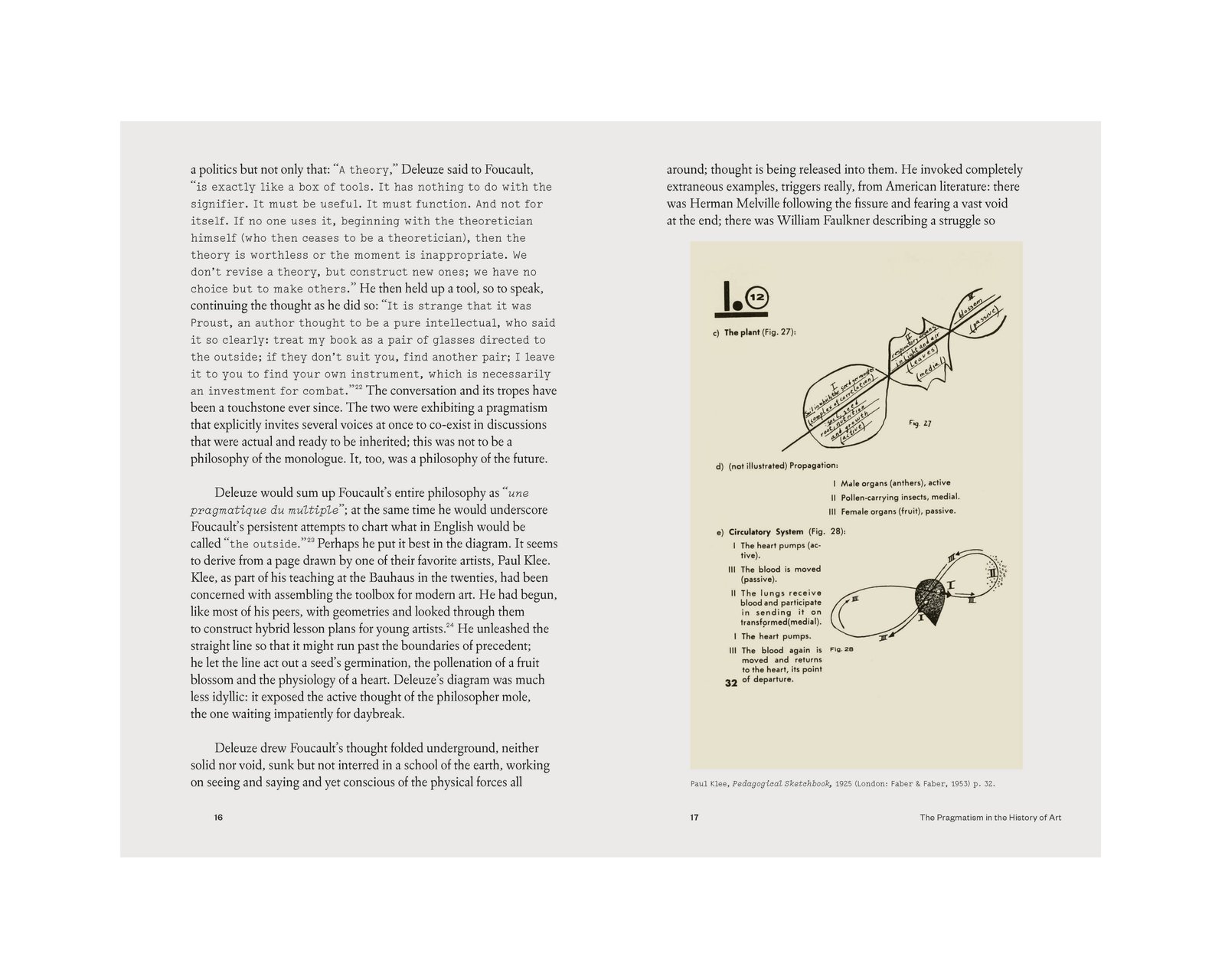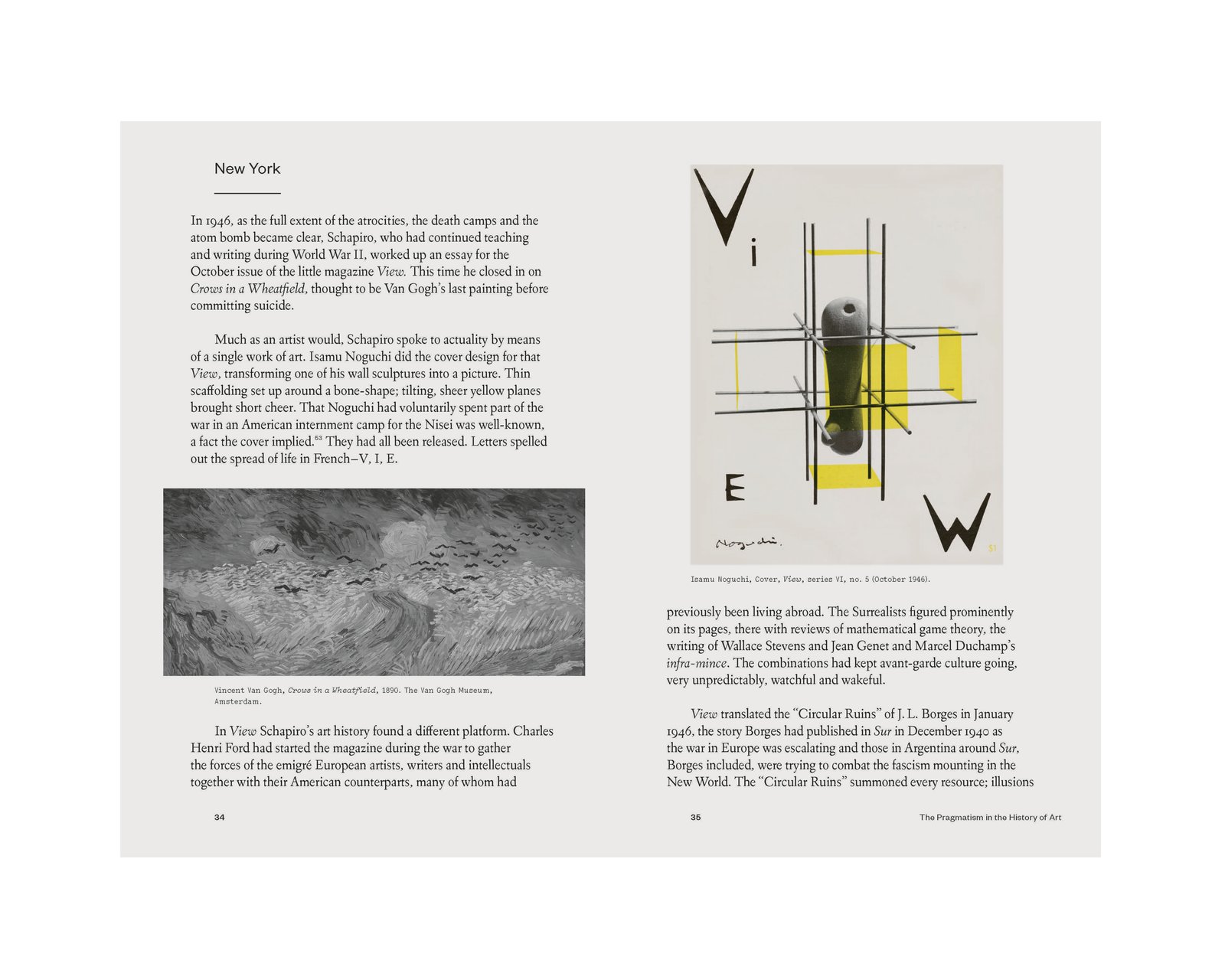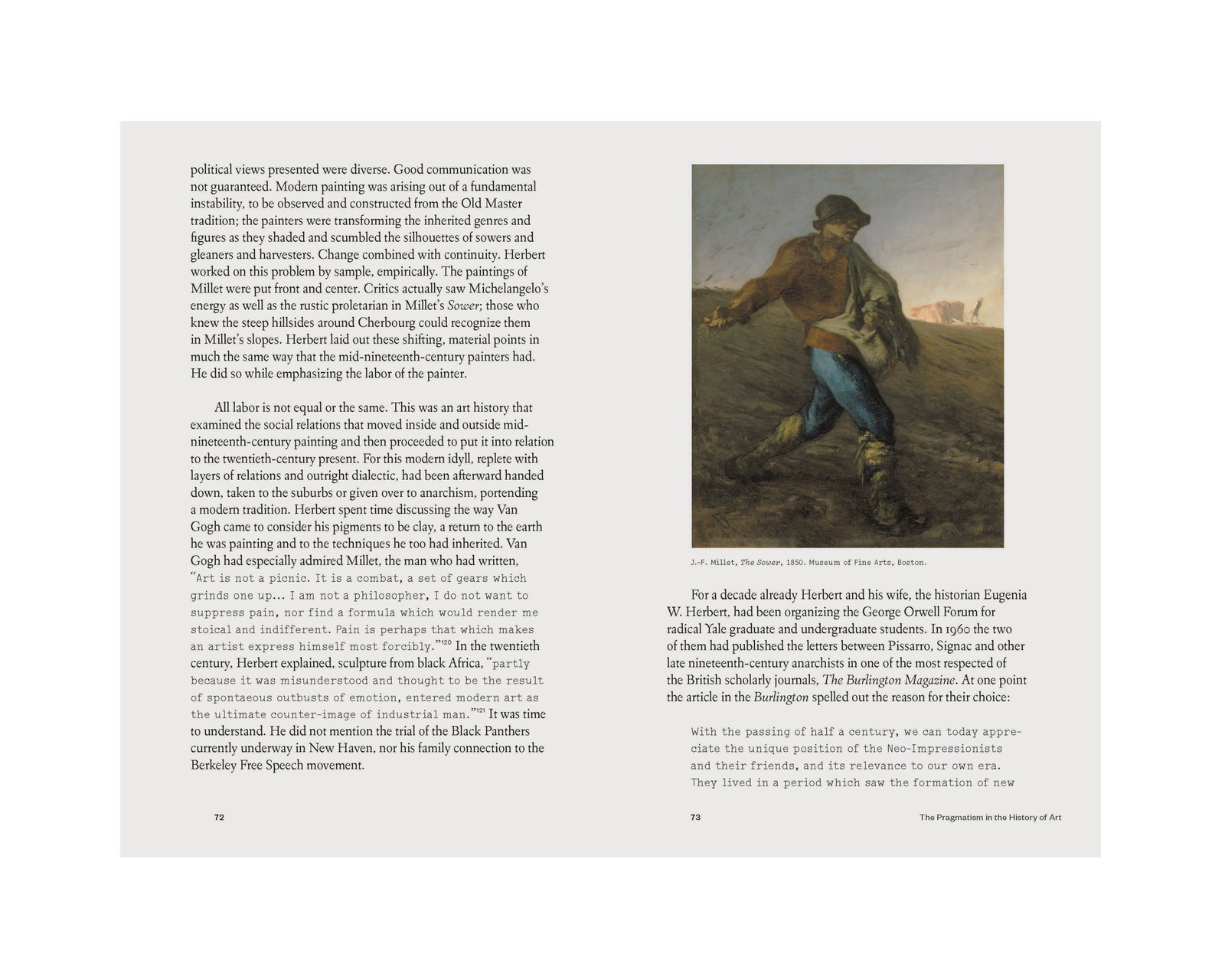The Pragmatism in the History of Art
$30.00
6 x 9 inches, 128 pages, hardcover
ISBN 978-1-941753-27-9
Design by IN-FO.CO
"Art history without a philosophy of history—'there is no script,' as Nesbit says—is also art history without a tragic dimension. With the pragmatists and, for that matter, with Deleuze, she shares a fundamental optimism and a forward- looking gaze. But like Focillon and Schapiro, Nesbit also has high aspirations for her discipline. She throws art history a lifeline."
—Christopher Wood, Artforum
The pragmatism of Charles Peirce and William James and John Dewey exists as it moved, absorbing and absorbed. Conclusions remain provisions, time riding on, perpetually unsettled, nocturnal, opaque. Many questions and conditions remain. They will recur. The future has not eased. In our own lifetime there have been stakes, some old, some new, in continuing to write about the time and place and point of art. It is important to mark them. Pragmatism is above all a way of working, it starts from the present
First published in 2013 and quickly going out of print, The Pragmatism in the History of Art traces the questions that modern art history has used to make sense of the changes overtaking both art and life. A genealogy emerges naturally, elliptically. Several generations cross back and forth over the Atlantic. The questions combine with case studies as a story unfolds: the work of Meyer Schapiro, Henri Focillon, Alexander Dorner, George Kubler, Robert Herbert, T. J. Clark and Linda Nochlin is scrutinized; the philosophy of Michel Foucault and Gilles Deleuze and the films of Chris Marker and Jean-Luc Godard show distinctly pragmatic effects; artists discussed include Vincent Van Gogh, Isamu Noguchi, Lawrence Weiner and Gordon Matta-Clark. The relevance of this material for the art and art-writing of our own time becomes increasingly clear.
Molly Nesbit is Professor in the Department of Art at Vassar College and a contributing editor of Artforum. This is the first book in her Pre-Occupations series, preceding Midnight: the Tempest Essays.
